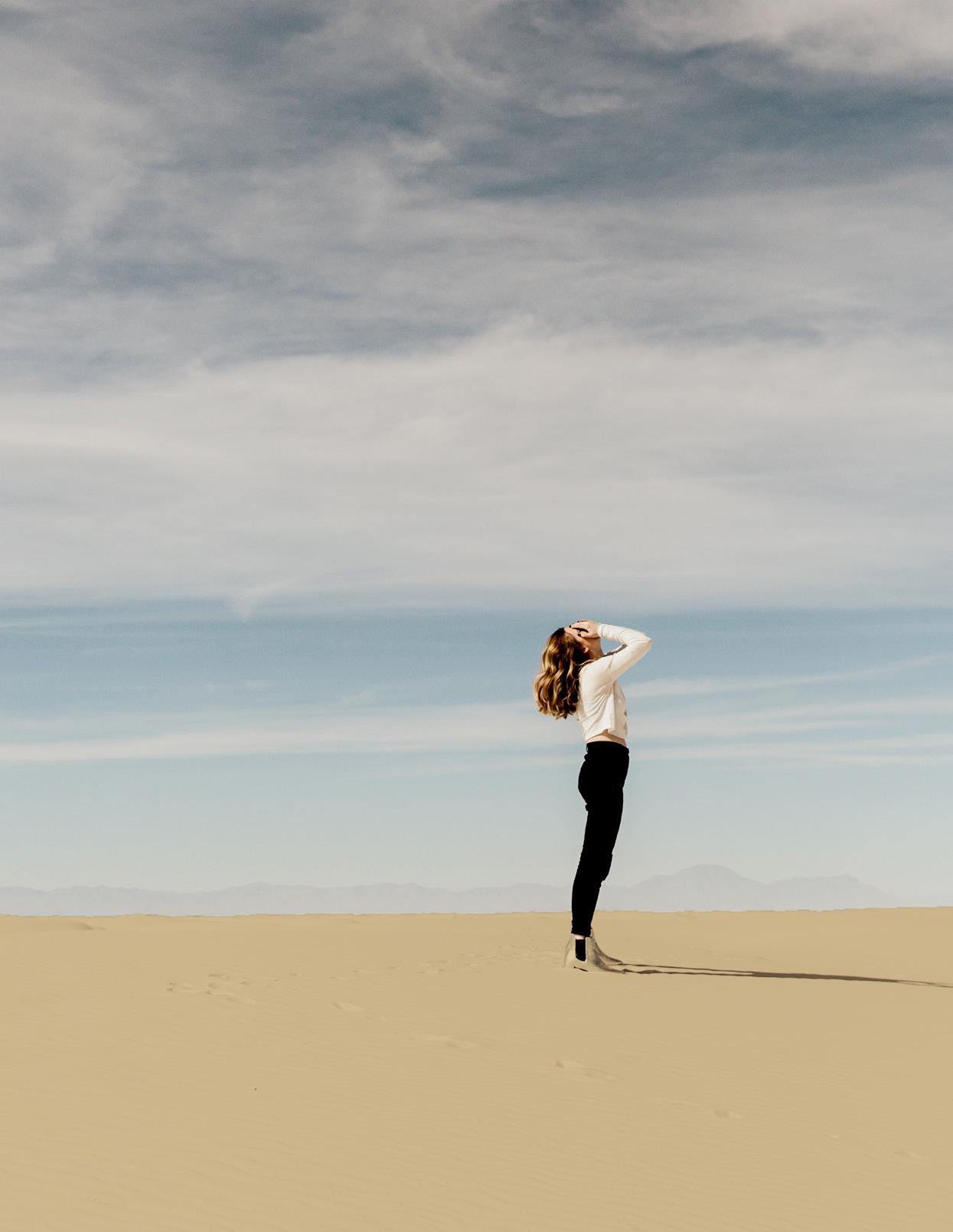
3 minute read
We always retain the ability to choose our attitude
Whether you are aware of it or not, we are all experiencing some form of emotional or mental whiplash as a result of the last few months. With our collective attention still firmly focused on coronavirus, and our lives changing in front of our eyes, our lack of normality is driving our anxiety.
It’s not new for society to be in the midst of fear. However, because this is a new experience it can be difficult to rationalise it within ourselves. Not knowing terrifies most of us. We think that effects must have causes, and so in order to predict what’s going to happen next (and thereby save our skins), we must know why we’re doing what we’re doing. Which would be possible, if we lived in a linear world. Which we don’t.
Throughout history, the world has been beset by tragedies that were overwhelming at their time. People who have lived through times of wars, plagues, genocides and other catastrophes stand testimony to the secret truth we all possess: you are not a product of your circumstances, but rather a product of your decisions.
Victor Frankl survived four concentration camps, which took the lives of his wife,his parents and his brother. In his book, A Man’s Search for Meaning, Frankl writes,“We who lived in concentration camps can remember the men who walked through the huts, comforting others, giving away their last piece of bread. They may have been few in number but they offer sufficient proof that everything can be taken from a man but one thing: the last of the human freedoms – to choose one’s attitude in any given set of circumstances, to choose one’s own way.“
History has taught us that the human spirit is infused with hope, and this is what truly defines our ability to overcome. While both hope and fear are great motivators, and they both have the capacity to promote growth in us, hope is what creates space in the mind and heart.
Think for a moment what fear feels like in your own body. When we are afraid, our body tenses up. We almost curl into ourselves when we are scared, and all we can do is think about the fear or the situation we are in. Conversely, when you feel hopeful, your body relaxes. Hope is the enduring belief that our wishes will be met, and this gives us confidence, positive thinking and excitement about life. It is the essence of moving forward and thriving.
We need hope right now. We cannot be very effective in the outer world if our personal energy is tied up in knots inside our own body. Hope is the knowledge that somehow we will endure, adapt, and persevere.
Fear is the prompt. Hope is the way. Fear is about trying to survive something. Hope is about knowing why you want to.
Doctors know that hope affects our ability to heal. Hopeful patients have higher levels of dopamine, endorphins and other neurochemicals which promote wellbeing and the energy for living.
Hope is actually something we create. It’s not something that magically appears from an outside source. We each have within us the capacity to generate hope.
Here are four things you can do today to generate the feelings of hope in your life:
1. Be kind to yourself – Think about what you need most today, and then do that for yourself.
2. Limit your intake of news – Over-saturation with news right now is detrimental to emotional health; if you check the news out in the morning, let that be enough for the day.
3. Take a break – Set yourself a 30 second break every couple of hours to do nothing but breathe, look to the sky, and offer thanks for what you do have.
4. Give – Each time we make a difference in the lives of others, we create hope in ourselves.
As Victor Frankl says, “When we are no longer able to change a situation, we are challenged to change ourselves.”
Kirsty Watermeyer Kirsty is a Yoga and Meditation Coach, a Transformation Facilitator and Writer. Contact her at kirsty@seednamibia.com










